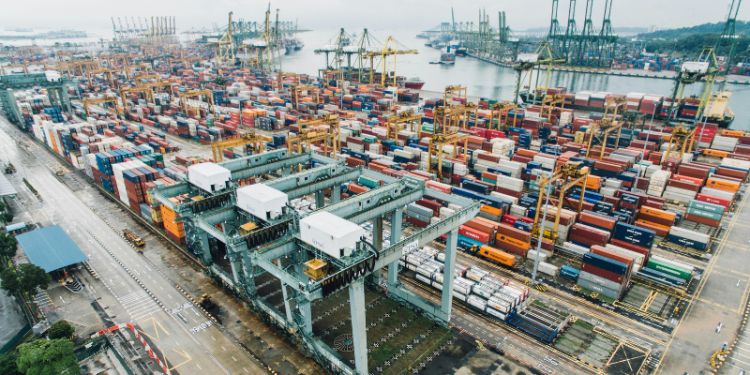‘Are we prepared to trade our values off against market access for things such as cheese?’*: School of Law Professor Fiona Smith advises the House of Commons on trade policy

Professor Fiona Smith gave oral evidence to the House of Commons Environment, Food and Rural Affairs Committee for the second session of their inquiry ‘UK trade policy: food and agriculture’.
Professor Smith, Associate Director for Agrifood Supply Chains at the University’s Global Food and Environment Institute, is an expert in international agrifood trade regulation.
In the inquiry so far, MPs have been scrutinising the Free Trade Agreements (FTAs) the UK has signed since leaving the EU. The focus of Professor Smith’s session was on what has been learned from the Australian and New Zealand deals. Since the UK is acceding to the Comprehensive and Progressive Agreement for Trans-Pacific Partnership (CPTPP), there was also exploration of the impact of UK accession and of the arrangements being negotiated with Canada, various Gulf states, and India in separate trade agreements. MPs were interested in questioning the witnesses on what the major long-term opportunities and challenges to industry could arise from these FTAs.
Professor Smith’s oral evidence was balanced between the positives and negatives inherent in such trade deals, whilst speaking to the legal complexity surrounding them. Her first and major point was about the need for the formation of a trade strategy, as well as a White Paper, since the Government’s thinking on this is ‘evolving at pace’.
She encouraged the integration of international (trade) policy with domestic policy, so that UK values were considered whilst negotiating deals. She gave several key examples, such as:
- Negotiating a trade agreement which opens up a flow of fruit and vegetables (especially those that can’t be grown or are vulnerable in the UK) and which shifts the concentration of the UK’s large percentage of imported fruit and vegetables (46%) from the EU, could dovetail with domestic policy on consumer health;
- Importing palm oil that may have been grown on deforested land needs to be considered regarding its intersection with the UK’s as-yet-incomplete regulation of forest-risk commodities;
- Trade agreements with some Gulf countries could clash with UK animal-welfare standards, especially in the treatment of animals at time of slaughter.
She also pointed out that the Australia deal actually has chapters on trade and gender equality, and therefore UK values can be embedded in future trade deals too.
She says:
A trade strategy would allow the government to clearly set out how it intends to maximise export opportunities for UK business, protect UK values, and how it intends to use trade measures to deliver on important domestic policy objectives.
She hopes that the inquiry will reveal how many sectors are implicated by the UK’s trade strategy and why it is so important that the UK government publishes a clear trade strategy. Such a strategy should show how government intends to maximise the opportunities for UK business for exports of agrifood, whilst acknowledging and addressing the challenges. The inquiry should address too how the UK government should embed value in its trade policy going forward.
Professor Smith’s thoughtful and nuanced evidence on this issue is a prime example of how School of Law academics produce research that has significant impact on policy matters.
Professor Smith is a member of the Centre for Business Law and Practice and the Centre for Law and Social Justice.
She shares more insights on X/Twitter @ProfFionaSmith
*The headline is a quote from Professor Smith and references the UK-Canada trade rift over cheese and beef.




